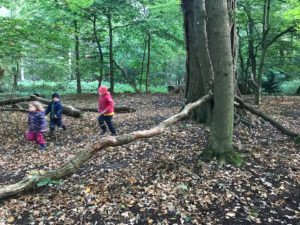
Last year I wrote about the time “between the years” – that time span between Christmas and New Year’s that can feel like a gap in time, a reprieve from other, more tightly scheduled times of the year. A kind of time that invites reflection and contemplation.
Lately I’ve been thinking about another kind of gap, one highlighted by the Tibetan Buddhist bardo teachings. Bardo – a Sanskrit word – can be translated as “intermediate state” and refers to the transitional states on an individual’s journey through the process of dying and between death and rebirth.
While this year, like 2020, has provided ample opportunity to relate to literal death and dying, the teachings also relate to what happens in this life.
“Bardo means gap; it is not only the interval of suspension after we die but also suspension in the living situation […] There are all kinds of bardo experiences happening to us all the time, experiences of paranoia and uncertainty in everyday life; it is like not being sure of our ground, not knowing quite what we have asked for or what we are getting into.” (Fremantle & Trungpa, 1992)
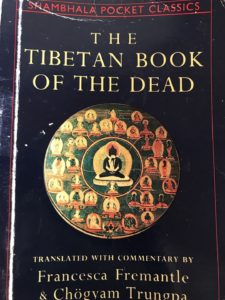
In other words, everything falls apart, and we don’t know whether we will ever get “it” back together – our work lives, our health, our friendships, our finances – if we ever had it together in the first place. The pandemic has a way of highlighting the fundamental groundlessness of life that is so easy to ignore as long as we are able to maintain a sense of control. How do we relate to this truth when the habitual structures of life get yanked away? Sometimes panic attacks seem like the only logical response.
Sometimes, words can help. The above quote from the Tibetan Book of the Dead does not sugarcoat things. But it reminds me that “suspension in the living situation” is a shared human experience. Poems, prayers and chants can similarly remind us of the bigger picture of our existence.
In a folder on my computer I keep a collection of quotes and poems. This morning I found this there, from Adlai Stevenson:
“We travel together,
Passengers on a little spaceship;
Dependable on its vulnerable reserves of air and soil;
All committed for our safety to its security and peace;
Preserved from annihilation only
by the care, the work and the love
we give our fragile craft.”
And then there are things beyond words, sometimes just the tiniest nudges we can give ourselves to cultivate Zuversicht, a sense of faith or possibility. For me it is often time in the woods that helps with that because, as Ralph Waldo Emerson wrote (another quote from my collection), “In these woods we return to reason and faith.”
I’ll leave you with one of my favorite moments of Zuversicht from this year. It involves the woods and a bunch of three-to-six-year-olds.
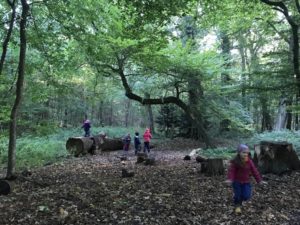
It was a crisp October morning, the sunlight brilliant but no longer warm. I was walking along a trail in a north-central German forest, looking for something I did not quite know how to picture: a forest preschool. One of the educators, Sabine, had given me directions to the site where the children spent their mornings. (One of the great fringe benefits of being a writer is that you can call up people who do things you are interested in and arrange your own personal study visit.)
Around a bend in the trail, past a huge, gnarly oak trunk, the forest opened up to a small clearing. Some logs formed a rough circle some twenty feet across; a woman bundled in a down jacket and knit cap waved to me. “Welcome! This is our forest sofa,” Sabine explained. “This is where we gather for breakfast and a check-in mid-morning. Until then, the kids play.”
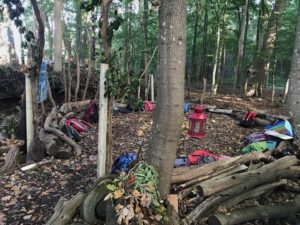
I looked around. Groups of two, three, or four children were scattered around an area of a few hundred feet around the clearing. Some were balance-walking across a downed log, two were taking turns swinging on a simple board-and-rope swing attached to a sturdy tree branch. Other kids were half-hidden by ferns and saplings, pointing to something I couldn’t see.
“I don’t see any toys,” I told Sabine, “unless you count the swing set.”
“That’s right,” she replied, “they play with what they find here. Feel free to walk around and talk to them.”
I noticed a little girl arranging leaves on a log and walked over to her. She glanced up at me, a look of concentration and contentment on her face. “Hi. Do you want to help me collect leaves?”
“Sure,” I said. “What kind would you like?”
“I could use some beech leaves. So far I have mostly oak,” she replied, then turned back to her log.
The little girl couldn’t be more than four years old. What a contrast to my own indoor preschool experience. As a city kid, it was not until young adulthood that I learned to tell one tree species from another. I looked around and noticed a tree with smooth, gray bark. I picked out a few beech leaves from the leaf litter below and offered them to the girl. She took them and we smiled at each other, fellow passengers on our little spaceship.
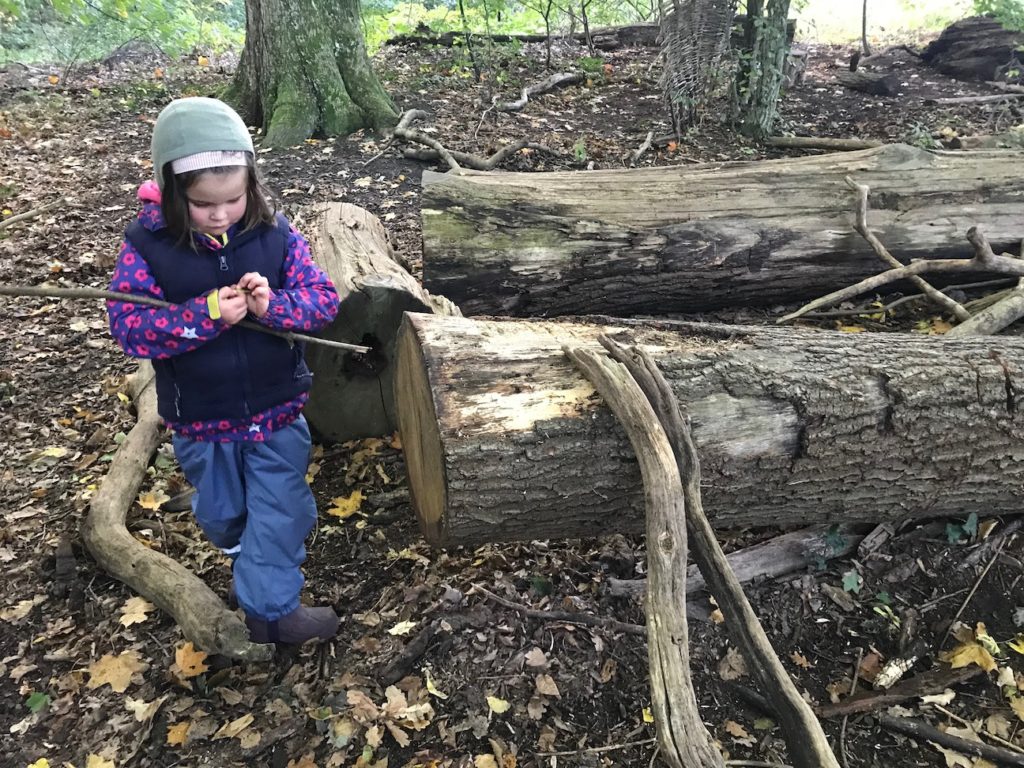
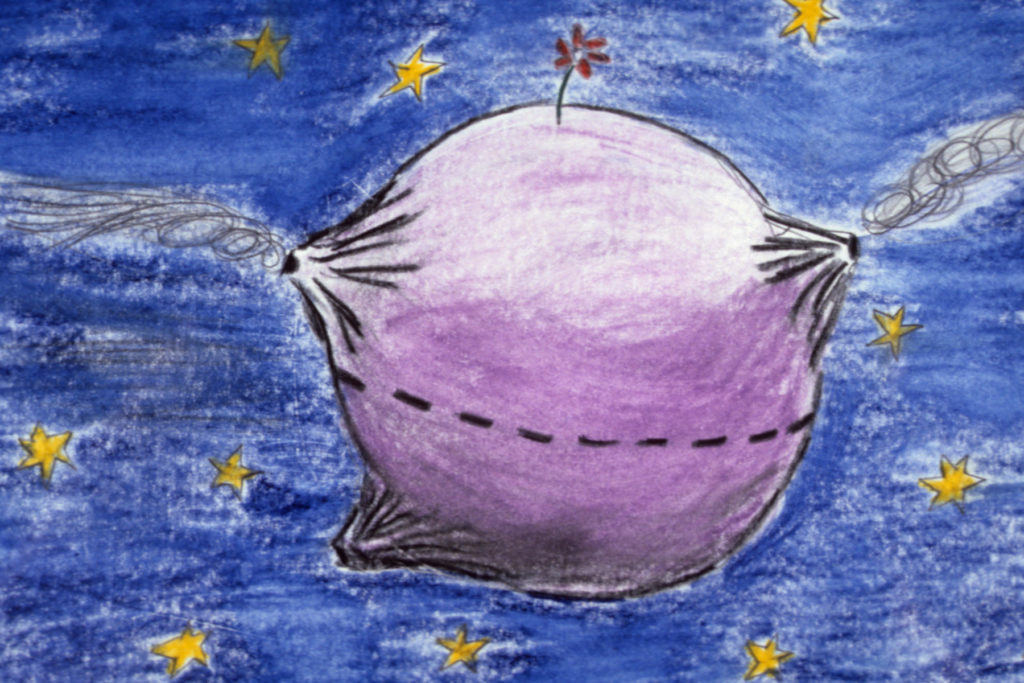
Asteroid © K.Lange 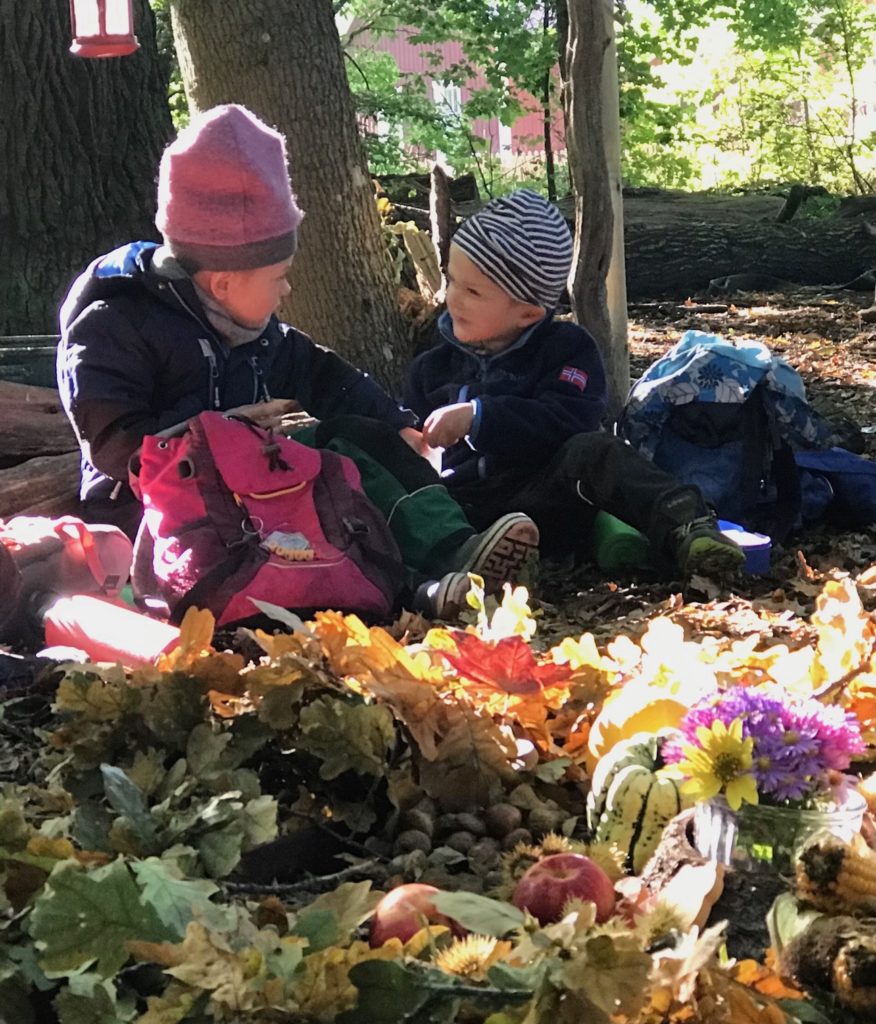
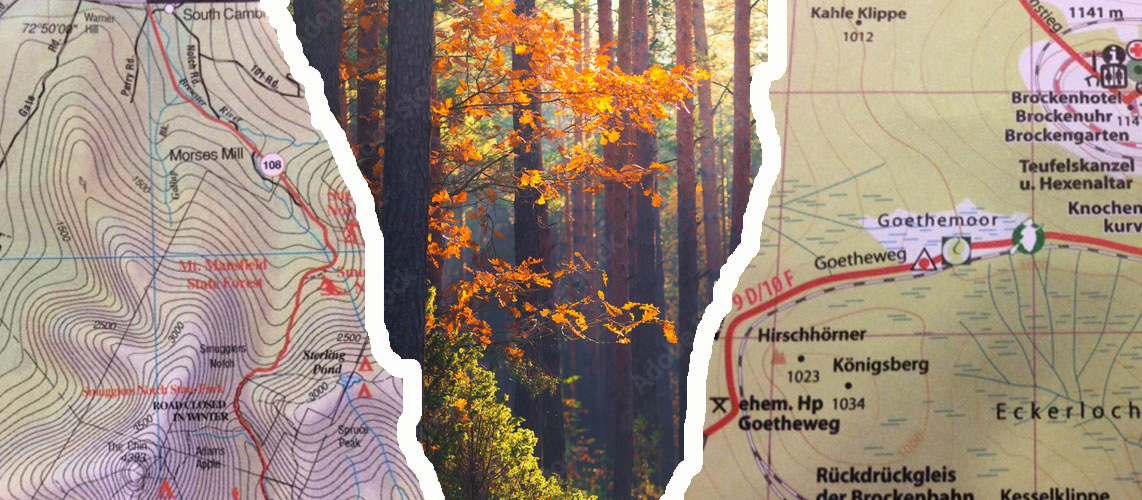
Lovely image of a child collecting leaves against a backdrop of a larger uncertainty.
“The ability to simplify means to eliminate the unnecessary so that the necessary may speak.” – Hans Hofmann
Thank you Eric! I will add Hans Hofmann’s quote to my collection…
What a lovely moment to have sought out and then captured for us in words and photos! This is a great metaphor to bring with us into the new year. Thank you for sharing, Kerstin.
Thank you Emilie! I think you would have liked that forest preschool, and little Ella.